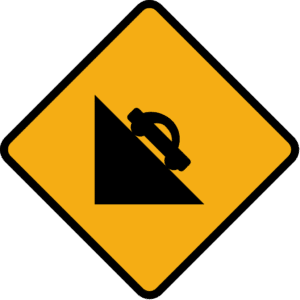Most cases of hearing loss in Simi Valley involve an inability to understand high frequency sounds. Women’s and children’s voices are the most difficult to comprehend. A rare type of hearing loss, known as reverse-slope, has the opposite effect: it makes low-frequency sounds hard to hear.
Low-Frequency Hearing Loss

Damaged hair cells in the cochlea most often result in a loss of ability to understand high-frequency sounds. In rare instances, such as that of a Chinese woman last year, people have trouble with low frequencies instead.
The atypical story of a woman, identified only as Chen, made worldwide headlines in 2018. She went to bed feeling nauseous and suffering from a ringing in her ears. When she woke up the next morning, Chen was unable to understand male voices, including that of her boyfriend. Doctors diagnosed her with reverse-slope hearing loss, a condition so rare only 3,000 people on the North American continent are affected.
Reverse-slope hearing loss is characterized by an inability to hear low-pitched sounds. Chen was unable to understand her boyfriend because men tend to have deeper, lower-pitched voices than women. People with reverse-slope hearing loss find understanding vowel sounds, which have more low-pitch energy and contribute more to our sense of volume than consonants, which are higher-pitched and contribute more to speech clarity, especially difficult to understand.
Solutions for Reverse-Slope Hearing Loss
There are three main causes of reverse-slope hearing loss:
- Genetics. A particular gene occasionally inhibits the development of hair cells in the inner ear responsible for pitch perception.
- Meniere’s disease. This inner ear disorder causes vertigo, tinnitus and hearing loss. It affects the fluid surrounding the inner ear and can lead to difficulty in understanding low-pitched sounds.
- Sudden-onset conditions. Sometimes, as in Chen’s case, hearing loss develops suddenly with no warning. This is often the case with reverse-slope hearing loss. It is often related to a viral infection, but sometimes the exact cause or condition is unknown.
- Audiologists in Simi Valley find treating reverse-slope hearing loss problematic. When the disorder is caused by genetics, there is nothing that can be done. Steroid injections may be able to help those who develop the condition suddenly, though success is limited and symptoms can remain. The best solution for those suffering from reverse-slope hearing loss is counseling and coping strategies that can help these individuals lead a better quality of life.
Reverse-slope hearing loss is exceedingly rare, but if you think you are experiencing symptoms, call your Simi Valley hearing specialist immediately. The sooner you receive treatment, the better your long-term odds of success.
